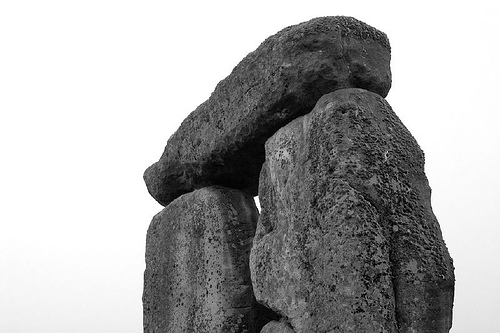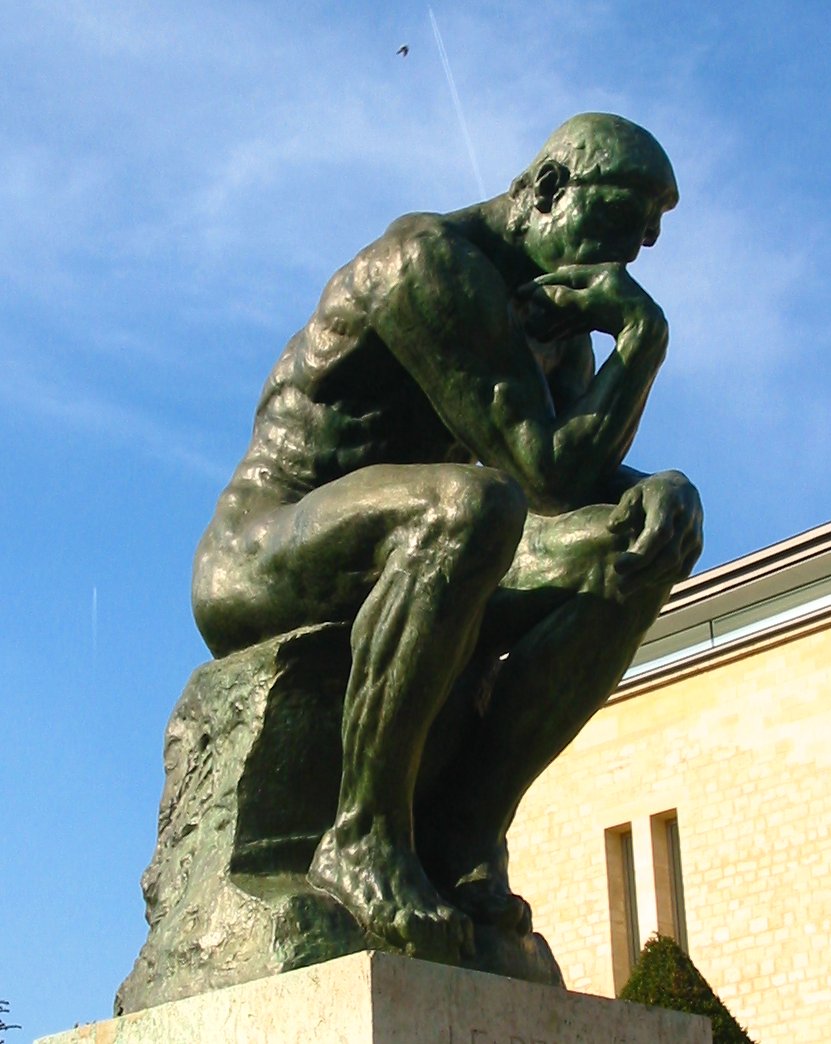Category: Philosophy and Theology
-

Faith, Philosophy, Scripture: Secular Mormons
The irony of religious fundamentalism is that it is a profoundly modern and profoundly secular phenomenon. This is perhaps especially true of the scriptural literalism that often accompanies it. The result is that many of the most conservative Mormons are, in point of fact, also the most secular. Few Mormons are more secular than Joseph…
-

Peace
Sometimes unintentional mistakes lead to interesting lines of thought. A few weeks ago I misheard a speaker in an LDS meeting. The speaker was quoting John 14:27, and either because of the speaker’s mispronunciation or my imperfect hearing, I heard the word “live” instead of the word “leave.” This lead me to think about what…
-

Faith, Philosophy, Scripture: The Call
It is a commonplace in Zen that three things are necessary for liberation. If you want to wake up from the slumber of self-absorption, if you want to live your life outside the suffocating confines of that mason jar that is your own head, you need (1) great faith, (2) great doubt, and (3) great…
-

Faith, Philosophy, Scripture: Pagan Faith
Mormons are metaphysical heretics, backward pagans, country bumpkins, who claim that the world, rather than being one, is fundamentally many. We’re metaphysical pluralists and so break with the creeds. Unity is a product, not a starting point. God the Son is not God the Father and (moreover!) all intelligences are uncreated and co-eternal with God. As a…
-

Faith, Philosophy, Scripture: Memory
Say someone asks if you know the time. You say yes and then look at your watch. Did you really know the time? Say someone asks you how to get downtown to the museum. You say yes. They ask you to write down directions. You can’t, but you offer to drive them there instead. If you…
-

Faith, Philosophy, Scripture: A Typology of Readers
In the introduction to his Faith, Philosophy, Scripture (Neal A Maxwell Institute, 2010), Jim Faulconer gives us a kind of typology of religious subjects. Imagining the different kinds of responses he might get to the difficulty of his philosophically inclined essays, he picks out four basic types. I. Typology 1. Those who enjoy a kind of childish naivete.…
-

Home Waters: Recompense
Of his awakening, Dogen says, “I came to realize clearly that mind is no other than mountains and rivers, the great wide earth, the sun, the moon, the stars.” Tinged with enlightenment, you see what Dogen saw: that life is borrowed and that mind itself is mooched. Every day you’ll need something old, something new,…
-

Home Waters: Gene/ecology
Earth is stratified time. Use some wind, water, and pressure. Sift it, layer it, and fold it. Add an inhuman number of years. Stack and buckle these planes of rock into mountains of frozen time. Use a river to cleave that mountain in two. Hide hundreds of millions of purloined years in plain, simultaneous sight…
-
“There could not have been saints in Ancient Greece”
This is what we find at issue in today’s debates concerning homosexual marriage and lifestyle.
-
Home Waters: Soul as Watershed
Spurred by Handley’s Home Waters, I’ve been reading Wallace Stegner. Like Handley, Stegner is interested in the tight twine of body, place, and genealogy that makes a life. On my account, Handley and Stegner share the same thesis: if the body is a river, then the soul is a watershed. Like a shirt pulled off…
-

Home Waters: Overview
George Handley’s Home Waters: A Year of Recompenses on the Provo River (University of Utah Press, 2010) practices theology like a doctor practices CPR: not as secondhand theory but as a chest-cracking, lung-inflating, life-saving intervention. Home Waters models what, on my account, good theology ought to do: it is experimental, it is grounded in the…
-

What we talk about when we talk about God
Bruce Feiler’s daughter was just five when she pitched him a question right to the gut of religious experience: “Daddy, if I speak to God, will he listen?” Feiler writes books on the Bible and God for a living, so he’d presumably given the question some thought. Nevertheless he had no good answer ready for…
-

Once upon a time on earth: the Church in a changing world
In debates over controversial religious issues, one often encounters a certain kind of argument from history, a sort of “once upon a time” argument. Once upon a time, it’s argued, the Church considered a given practice or belief, from witchcraft to usury to the heliocentric cosmos, to be immoral, unbiblical or otherwise forbidden. The particular…
-

An Apostle on Muslims
Yesterday, I read the following comments on Muslims by an LDS Apostle: I am aware it is not without a great deal of prejudice that we as Europeans, and Americans, and Christians in religion and in our education, so called, have looked down upon the history of Muhammad, or even the name; and even now…
-
Ripples in History
I recently finished Victor Davis Hanson’s Ripples of Battle (Doubleday, 2003), with the give-it-all-away subtitle How wars of the past still determine how we fight, how we live, and how we think. Generalizing a bit, not just wars but many major events and some small, unnoticed ones send ripples into the future, silently influencing future…
-

How to write a revelation
I have been working on a paper looking at the Doctrine and Covenants, and my research has me thinking about how the texts of modern revelation were produced. I think that there are a lot of Mormons who assume that the words of the revelations in the Doctrine and Covenants were dictated word for word…
-
A Reading of President Packer’s “Presiding in the Home”
During a great discussion of our most recent general conference, one very bright young woman in my class sincerely asked, “President Packer said that ‘the father presides at the table’ – and I just want to know what that means.”
-
Beliefs and Causes
Beliefs are complicated and sometimes strangely resistant to facts. I don’t mean religious beliefs in particular, but everyday beliefs about how the world works and how it is that we come to hold them. That’s what I took away from a recent reading of Lewis Wolpert’s Six Impossible Things Before Breakfast: The Evolutionary Origins of…
-
Theological Anthropology at UVU this weekend
The Society for Mormon Philosophy and Theology holds its 2010 conference at UVU this Thursday through Saturday (March 25-27) on the theme of theological anthropology. Invited speakers include: Terryl L. Givens (University of Richmond)—”Finding the Divine in Man: Romantic Angst and the Collapse of Transcendence”; Kevin Hart (University of Virginia)—”The Prodigal Son”; Laurence Hemming (Lancaster…
-

James Alison and the reconciled discourse of dissent
Last week a friend invited me to attend a lecture sponsored by the SLU Theology Club and featuring James Alison, a Roman Catholic priest and theologian. Alison grew up in Britain, was raised in a low-church Protestant tradition, converted to Catholicism, and now resides in Belo Horizonte, Brazil, living as an openly gay Catholic and working…
-
Alienated in Zion
“I say unto you, be one; and if you are not one ye are not mine (D&C 38:27).” And then comes the uncomfortable experience of sitting in Sunday School (or in the midst of some other group of Mormons) with the persistent, anxious thought, “I really don’t fit in here…”
-
The Evolution of Excommunication
I recently went through every version of the Church Handbook of Instructions, looking at what they have to say about the operation of church courts and how it has changed over time.
-
The New “Opiate of the Masses”
In 1844 Karl Marx said that “Religion is the opium of the people,” and seemed to suggest that its abolition would bring true happiness.
-
January 1 of the year 40
Happy Moonlanding Day! When I was a youth, I read a science fiction book in which dates in the future were figured from the day that Neil Armstrong set foot on the Moon, apparently because the date had such significance in the history of man.
-
Political Sentiments and Religious Sentiments
My own politics ocillate between liberalism (in the grand historical sense) and conservatism.
-
Theology in the Wake of Evolution
It’s not easy being a theologian in the 21st century. One of the main reasons is that science provides credible, non-theistic explanations for many of those “where did we come from?” questions that religion once had all to itself. Evolution seems to pose a particular challenge. John Haught, a professor of theology at Georgetown, tries…
-
Conscience in the Obama Era
I linked yesterday on the sidebar to Stanley Fish’s latest editorial in the New York Times, which takes as its occasion the possibility that President Obama will revoke the “conscience clause” allowing health care providers the right to refuse to provide certain services. I thought I’d add a few thoughts here.*
-
Confronting Modernity
I recently finished up Hans Kung’s Great Christian Thinkers, which reviews the work of seven theologians (Paul, Origen, Augustine, Aquinas, Luther, Schleiermacher, and Barth). From an LDS perspective, the most interesting of the bunch is Friedrich Schleiermacher, who Kung terms “the paradigmatic theologian of modernity.” The question he presents to LDS readers is how our…
